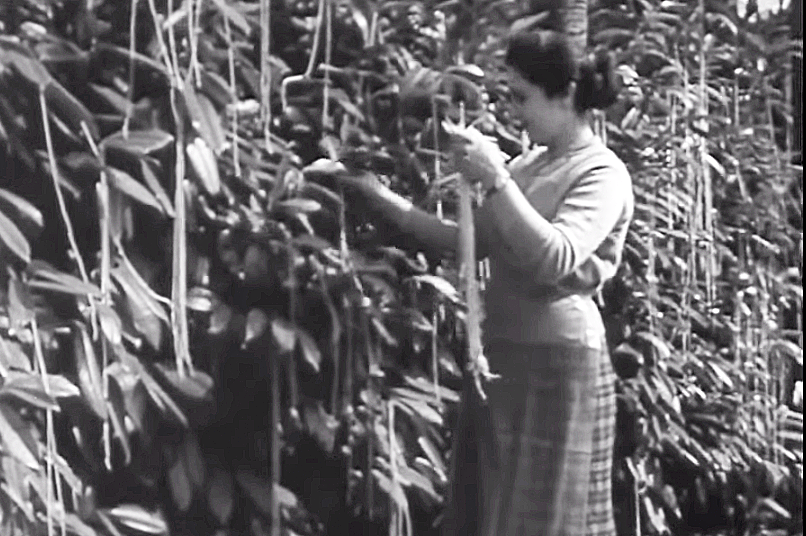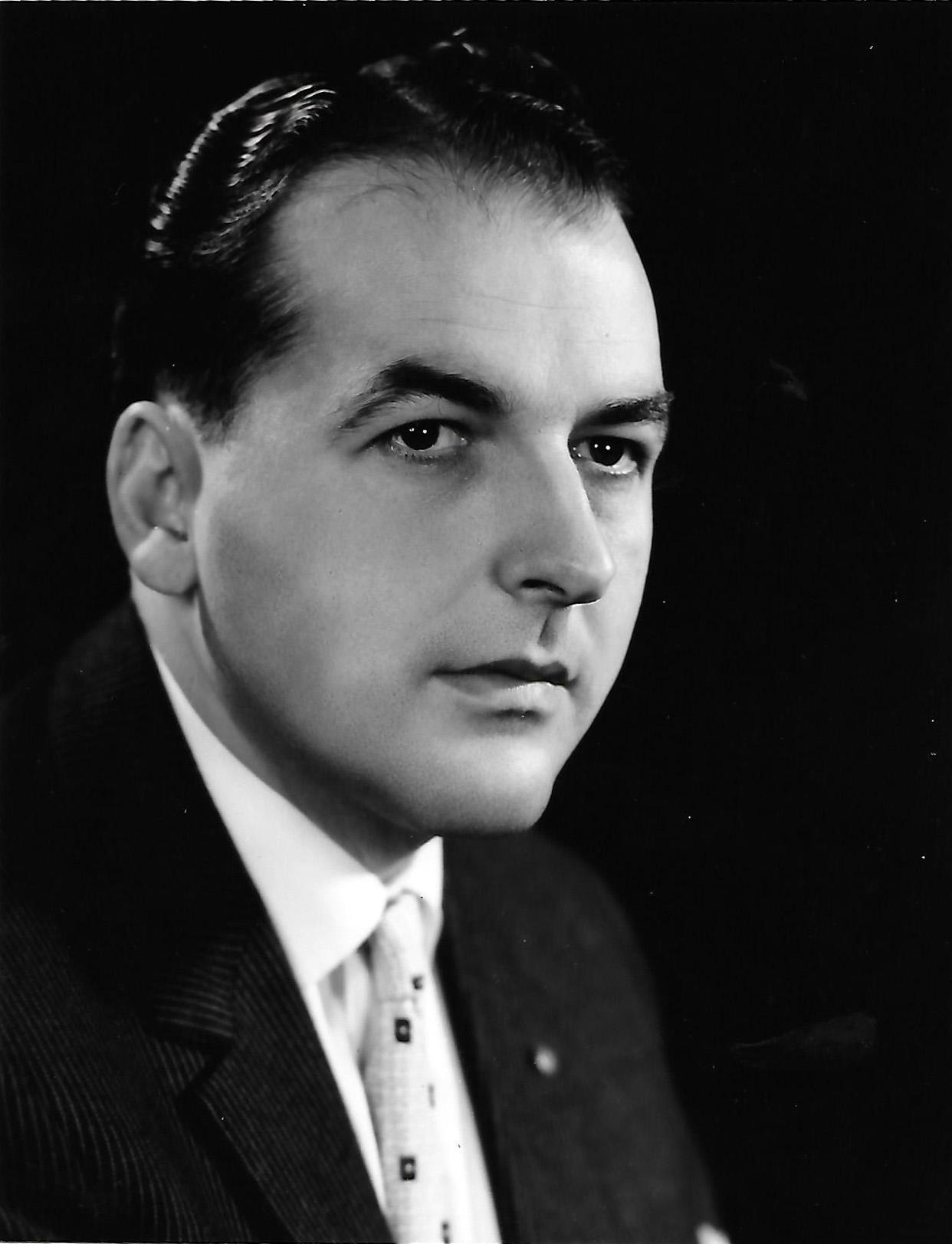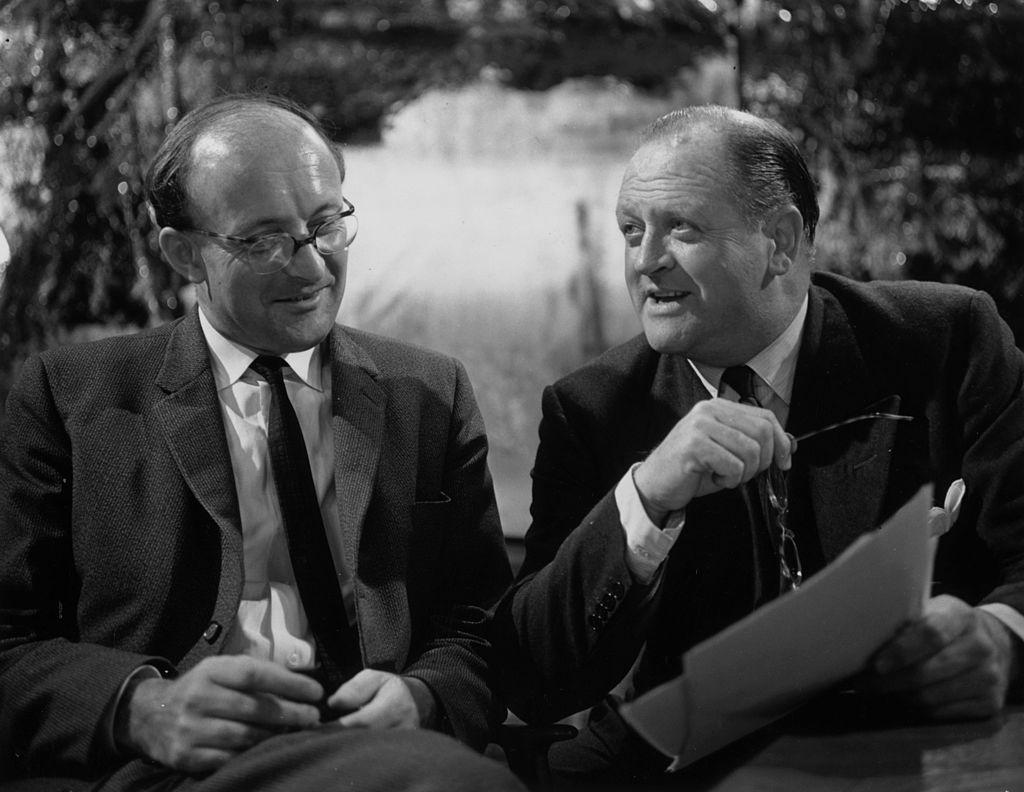
Swiss spaghetti hoax still the pick of the crop

Few April Fool's Day hoaxes can beat the spoof report on the Swiss spaghetti harvest of 1957. swissinfo.ch talked to the former publicity officer at the Swiss National Tourist Office in London who was behind the story.
On April 1, 1957 the BBC news show “Panorama” broadcast a three-minute report on a bumper spaghetti harvest in the Italian-speaking canton of Ticino. The video, shot in Morcote on the banks of Lake Lugano, showed a Swiss family pulling pasta off spaghetti trees and placing it in baskets.
Commentary was provided with gravitas by Richard Dimbleby, better known for his war reporting and insights on the royal family, who explained that the crop was a big success because of an unusually mild winter and the “virtual disappearance of the spaghetti weevil”.
The story was the brainchild of Charles de Jaeger, a BBC film producer, and Albert Kunz, the publicity officer at the Swiss National Tourist Office in London. Kunz, who is now 93 and lives with his wife in Pfäffikon in canton Schwyz, told swissinfo.ch how the story came about:
“Charles de Jaeger came into my office in February 1957 and explained that the BBC had decided to shoot a film in Switzerland for April Fool’s Day. He wanted me to come up with an idea for it. We went to an Italian restaurant for lunch and ordered spaghetti bolognese. And then we had the idea of hanging spaghetti off trees and filming a spaghetti harvest in Ticino.”
They rushed back to the tourist office to find out whether the idea was viable.
“Our secretary cooked spaghetti for us, which we hung up in the trees in neighbouring St. James’s Park. It didn’t work as the pasta got stuck together. A second experiment with raw spaghetti also failed – it simply blew away”.
Eventually they tried it with freshly made spaghetti from a pasta machine, and this seemed to work better. The two returned to St James’s Park and began decorating the trees with the fresh pasta – but there was a hiccup.

“We were approached by two deadly serious police officers who told us that it was an offence to touch and damage the plants in St James’s Park. They threatened to fine us but didn’t go through with it.”
The shoot in Morcote
In mid-March, Albert Kunz and Charles de Jaeger, the cameraman on the shoot, travelled to Morcote, on the northern shore of Lake Lugano in Ticino, a region famous for its magnolia blooms in spring.
At a restaurant in the area, Kunz, de Jaeger and six locals spent hours hanging spaghetti on trees. The subsequent shooting took all day, with participants trying to keep a straight face. “Some scenes had to be reshot several times as the actors were laughing so much,” Kunz said.
In the April 1 broadcast, footage of a traditional “spaghetti harvest festival” was aired along with a comment on the necessity of “breeding” spaghetti so that it reaches the perfect length. At the time, spaghetti was not a widely eaten food in the UK and was considered by many as an exotic delicacy.
Spaghetti tree requests
An estimated eight million British people watched the show and immediately afterwards the BBC was inundated by hundreds of calls from people wanting to find out how to grow their own spaghetti trees. The BBC is said to have replied: “Place a sprig of spaghetti in a tin of tomato sauce and hope for the best.”

The Swiss National Tourist Office in London was also overwhelmed by callers, but the office staff decided to stick to the facts. They explained, to the great disappointment of many callers, that spaghetti was produced industrially and was not an agricultural crop.
The office also received piles of letters. One person commented that they had seen a plantation in the Po Valley in Italy, where spaghetti was growing horizontally, and that the Latin name was Spaghetti horizontalis. The office wrote a joking letter back, explaining that the Swiss spaghetti was known in Latin as Spaghetti verticalis, as it grew vertically from the trees.
The Director General of the BBC, Sir Ian Jacob, was not informed about the spoof before it was broadcast. On the phone to Albert Kunz, he admitted he was just as surprised about it as most of the BBC viewers, and had to look up the origins of spaghetti in his encyclopaedia.
To this day, the Panorama broadcast remains one of the most famous and popular April Fool’s Day hoaxes of all time. It is also believed to be the first time the medium of television was used to stage an April Fool’s hoax.
The success of the venture did not do Albert Kunz’s career any harm. He went on to become director of the Swiss National Tourist Office in London and remained in his job until his retirement in 1988. Among his achievements, he set up the Swiss Centre, a piece of modernist architecture designed to showcase Swiss culture and gastronomy and encourage tourism. The building was demolished in 2007, but the spoof that Kunz helped produce still brings smiles to the faces of thousands of viewers around the world.

In compliance with the JTI standards
More: SWI swissinfo.ch certified by the Journalism Trust Initiative


























You can find an overview of ongoing debates with our journalists here . Please join us!
If you want to start a conversation about a topic raised in this article or want to report factual errors, email us at english@swissinfo.ch.